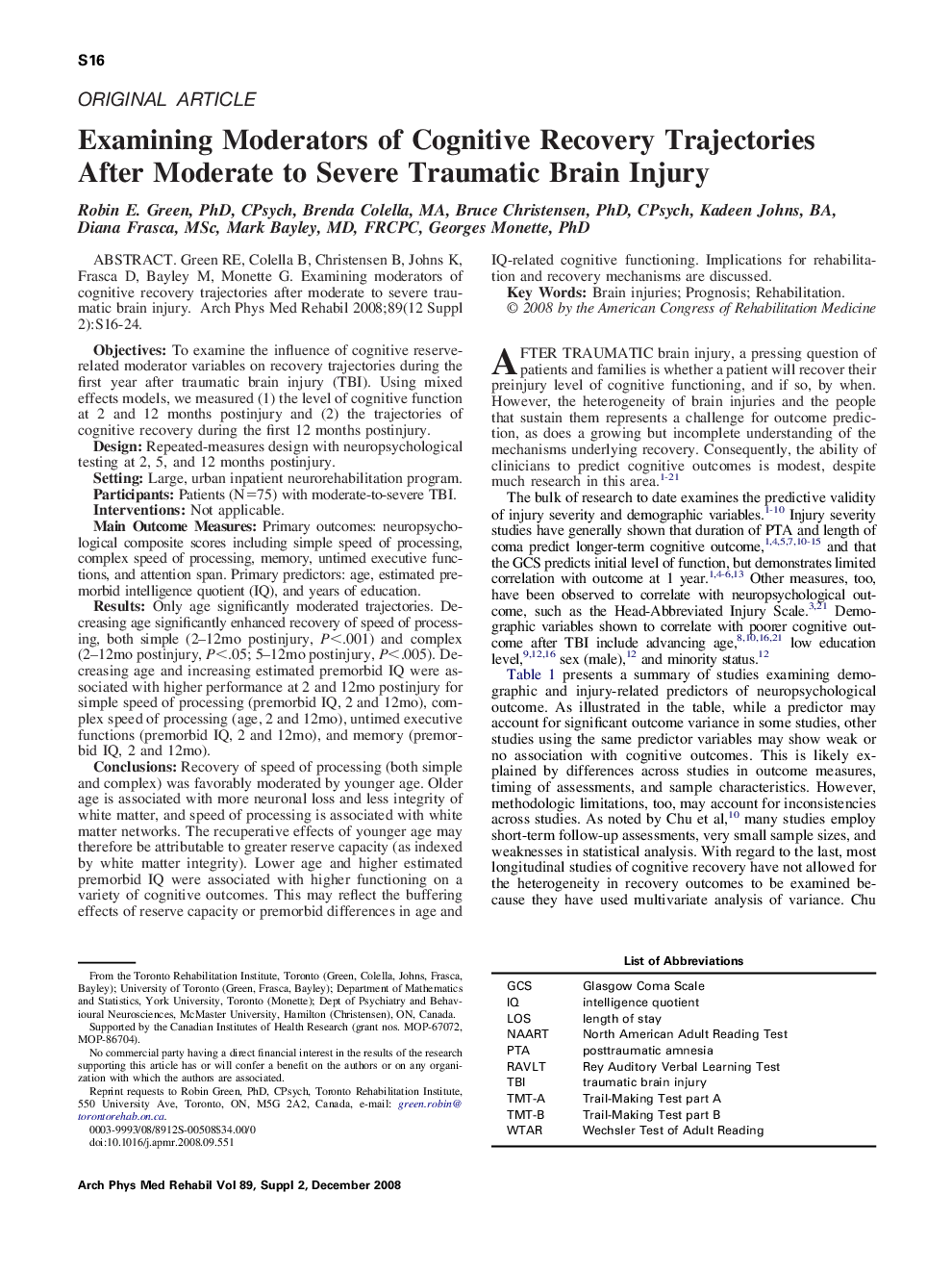| کد مقاله | کد نشریه | سال انتشار | مقاله انگلیسی | نسخه تمام متن |
|---|---|---|---|---|
| 3451599 | 1595772 | 2008 | 9 صفحه PDF | دانلود رایگان |

Green RE, Colella B, Christensen B, Johns K, Frasca D, Bayley M, Monette G. Examining moderators of cognitive recovery trajectories after moderate to severe traumatic brain injury.ObjectivesTo examine the influence of cognitive reserve-related moderator variables on recovery trajectories during the first year after traumatic brain injury (TBI). Using mixed effects models, we measured (1) the level of cognitive function at 2 and 12 months postinjury and (2) the trajectories of cognitive recovery during the first 12 months postinjury.DesignRepeated-measures design with neuropsychological testing at 2, 5, and 12 months postinjury.SettingLarge, urban inpatient neurorehabilitation program.ParticipantsPatients (N=75) with moderate-to-severe TBI.InterventionsNot applicable.Main Outcome MeasuresPrimary outcomes: neuropsychological composite scores including simple speed of processing, complex speed of processing, memory, untimed executive functions, and attention span. Primary predictors: age, estimated premorbid intelligence quotient (IQ), and years of education.ResultsOnly age significantly moderated trajectories. Decreasing age significantly enhanced recovery of speed of processing, both simple (2–12mo postinjury, P<.001) and complex (2–12mo postinjury, P<.05; 5–12mo postinjury, P<.005). Decreasing age and increasing estimated premorbid IQ were associated with higher performance at 2 and 12mo postinjury for simple speed of processing (premorbid IQ, 2 and 12mo), complex speed of processing (age, 2 and 12mo), untimed executive functions (premorbid IQ, 2 and 12mo), and memory (premorbid IQ, 2 and 12mo).ConclusionsRecovery of speed of processing (both simple and complex) was favorably moderated by younger age. Older age is associated with more neuronal loss and less integrity of white matter, and speed of processing is associated with white matter networks. The recuperative effects of younger age may therefore be attributable to greater reserve capacity (as indexed by white matter integrity). Lower age and higher estimated premorbid IQ were associated with higher functioning on a variety of cognitive outcomes. This may reflect the buffering effects of reserve capacity or premorbid differences in age and IQ-related cognitive functioning. Implications for rehabilitation and recovery mechanisms are discussed.
Journal: Archives of Physical Medicine and Rehabilitation - Volume 89, Issue 12, Supplement, December 2008, Pages S16–S24